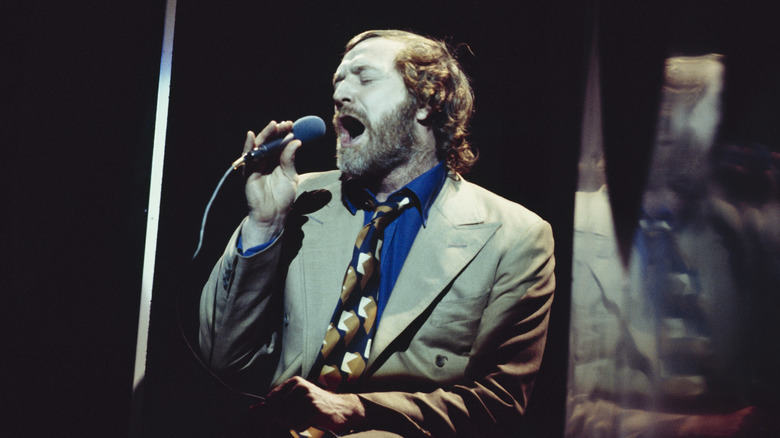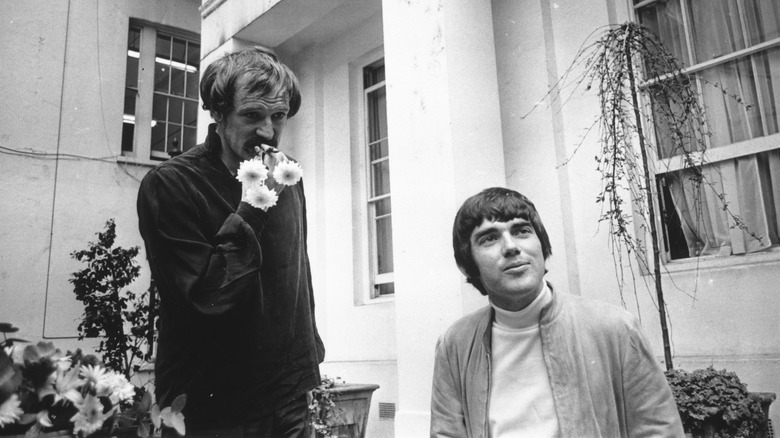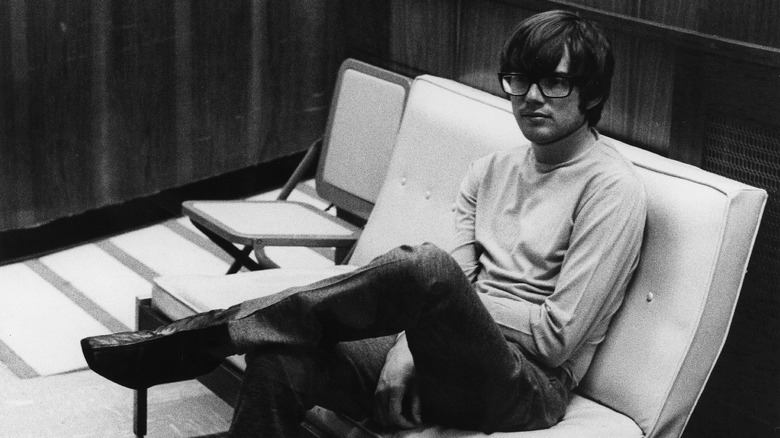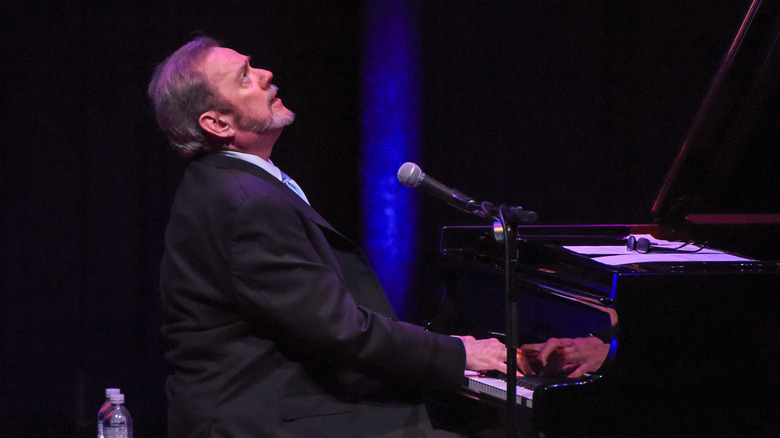What The Song MacArthur Park Is Really About
The legendary actor Richard Harris had an enormously successful career on stage and screen on both sides of the Atlantic, from Shakespearean turns at prestigious British theaters to starring in Hollywood blockbusters. Born in Limerick, Ireland, on October 1, 1930, Harris labored hard as a theater actor before being cast in various supporting roles in movies such as "The Guns of Navarone" in 1961, which caught the attention of American audiences. His performances led to the blooming of his movie career as a leading man, peaking in the late 1960s with leading roles in 1963's "This Sporting Life" and 1967's "Camelot," which cemented Harris as a household name.
With his star at its pinnacle, the Irish actor decided it was time to establish himself as an all-rounder and break into the world of pop music. It was a bold decision, but it turned out to be an astute one. And it took the talents of a 21-year-old singer-songwriter, Jimmy Webb — whose break-up song, "MacArthur Park," was wallowing in obscurity before Harris took a liking to it — to enact the actor's breakthrough. And as it turns out, the story behind the break-up song — his parting from Susan Ronstadt — was a deeply personal one for Webb.
Jimmy Webb's Break-up song
Jimmy Webb was born and raised in Oklahoma, where, brought up in a religious household by a church minister, he exhibited prodigious musical abilities. By his mid-teens, he had gone beyond playing standard church hymns and had begun to experiment went new arrangements and improvisations and to write his own songs in the style of his musical hero, Glen Campell.
By the mid-1960s, Webb had relocated to Los Angeles where he carved out a career as a songwriter of note, writing for several prominent acts including Johnny Rivers and Glen Campbell himself. But while on paper he was living the dream, Webb was experiencing some turbulence in his personal life. In 1965, Webb began a relationship with Susan Ronstadt, a woman he recalls he was completely infatuated with. The relationship, however, came to an abrupt end, which hurt the young songwriter deeply.
Webb's emotional state at the time was the major inspiration for "MacArthur Park," which is named after the park the young lovers would meet in — to picnic, walk, and talk. The most notable lyric in the song revolves around the image of a wet cake falling to pieces, a metaphor for the end of the romanticized relationship: "MacArthur Park is melting in the dark / All the sweet green icing flowing down / Someone left the cake out in the rain / I don't think that I can take it / 'Cause it took so long to bake it / And I'll never have that recipe again." Webb told the Los Angeles Times that the image of the cake came from birthday parties that he saw families holding in MacArthur Park.
A companion piece to MacArthur Park
While "MacArthur Park" is the Jimmy Webb composition that most closely outlines the emotional fallout of his breakup with Susan Ronstadt, the songwriter has claimed that another of his major works is also inspired by the tumultuous end of the relationship.
Webb's "By the Time I Get to Phoenix" was written in 1965 and first recorded by Johnny Rivers before becoming a major hit for Webb's musical hero, Glen Campbell. The song tells the story of a man traveling to Oklahoma while imagining the movements of his girlfriend, who doesn't know that her partner is leaving her.
Though it wasn't Webb who ended his relationship with Ronstadt, he has said that his feelings toward his former partner certainly inspired the song. "This affair was winding down to a kind of dreary close, and I was thinking, 'Well, I'll just go back to Oklahoma,'" the songwriter told Newsday. "So I wrote 'By the Time I Get to Phoenix.' Of course, I never even got in the car and turned on the engine to go back to Oklahoma. But it's related to 'MacArthur Park' in that sense. It comes from the same period when I was experiencing things and pretty much transferring them immediately into music."
The song has its critics
Richard Harris' recording of Jimmy Webb's "MacArthur Park" was a huge success, peaking at No. 2 in the charts. Webb (pictured) went on to write, record, and produce two full studio albums for the actor, both of which turned out to be respectable hits. Harris' first album with Webb, "A Tramp Shining," was nominated for a Grammy. Meanwhile, "MacArthur Park" has been recorded by countless artists, including Frank Sinatra and Donna Summer, who took it to No. 1 in the charts in 1978.
But the song's broad popularity doesn't quite translate to critical praise across the board, and while some modern music journalists have pinpointed "A Tramp Shining" as a classical-pop classic, the music Harris and Webb made together has come in for some harsh criticism — especially "MacArthur Park."
As Webb himself described in an interview with the Los Angeles Times in 2007, "MacArthur Park" has attracted a great deal of "intellectual venom" since its release, with its overblown lyricism and arrangement being ridiculed by music journalists such as Dave Barry, who placed it at No. 1 in his "Dave Barry's Book of Bad Songs" in 1997.



